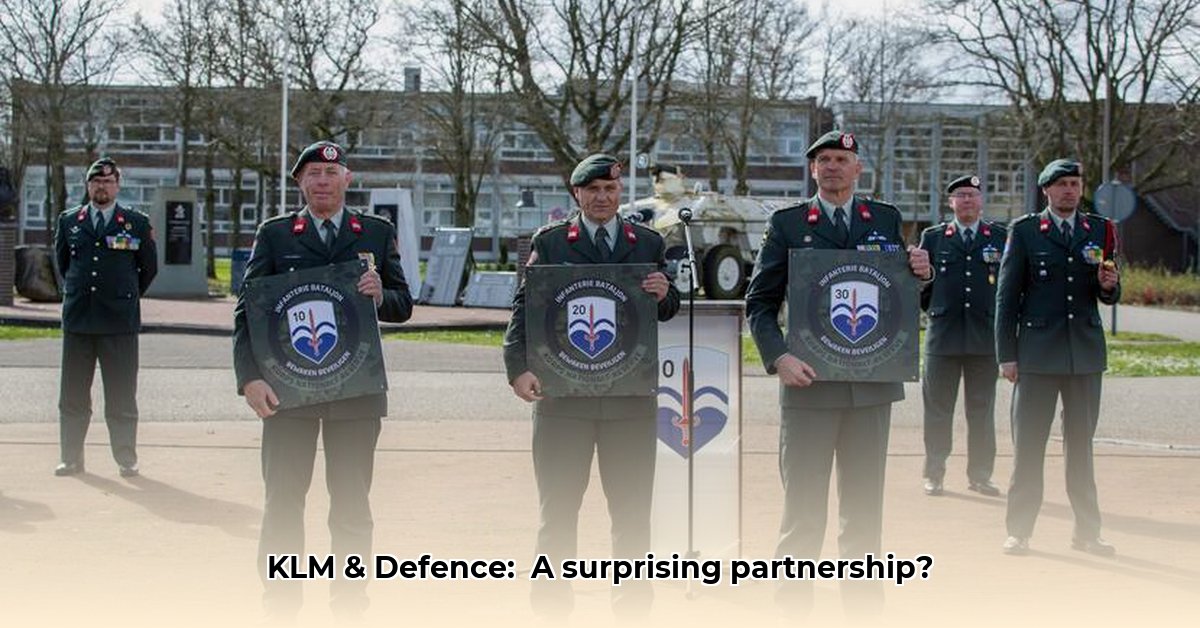
Die Lugmag se Nuwe Vlerke: 'n Kyk na die KLM-Defensie Reserwe Program
The Dutch Defence Force faces a critical shortage of pilots, a challenge impacting operational readiness and national security. To address this, a novel partnership between KLM Royal Dutch Airlines and the Ministry of Defence has launched a reserve pilot program, a significant step in bolstering the nation's airpower. This innovative initiative allows experienced KLM pilots to also serve as reservists for the Royal Netherlands Air Force (RNLAF), flying the F-35 Lightning II when needed. But is this a truly effective solution, or a potentially risky gamble? This article delves into the details, examining the program's mechanics, potential benefits, inherent risks, and prospects for long-term success.
A History of Tension: Bridging the Gap Between KLM and Defence
Before exploring the details, it’s crucial to understand the historical context. For years, a degree of tension existed between KLM and the Defence Force concerning pilot recruitment. While official statements from KLM deny claims of active “poaching,” the fact remains that numerous RNLAF pilots have transitioned to civilian airlines in recent years, often citing better compensation and career progression opportunities. This new reserve program represents a significant attempt to bridge this divide, foster collaboration, and create a mutually beneficial relationship.
The Program's Mechanics: Training, Deployment, and Operational Considerations
The essence of the program lies in the integration of civilian pilots into the RNLAF's operational structure. Selected KLM pilots undergo a rigorous training program to adapt to military protocols and the specific requirements of flying the F-35. While the exact number of participating pilots remains undisclosed, the initiative is understood to operate on a flexible model, whereby a pool of reservists share a limited number of full-time positions. This approach allows for operational adaptability whilst ensuring that the commitment doesn't excessively impact KLM's operations. This innovative system aims to leverage existing skills and experience rather than solely relying on costly and time-consuming ab initio training programmes. However, the challenge lies in ensuring consistent proficiency while balancing the demands of both civilian and military roles.
Analysis and Evaluation: Benefits, Challenges, and Risk Assessment
The potential benefits of the program are substantial. For the RNLAF, the immediate impact is a measurable increase in available pilots, thus enhancing their operational capacity and response capabilities. For KLM, it offers a unique employee development opportunity, enhancing pilot skills and boosting the airline's reputation as a supportive and patriotic employer. The Dutch government benefits from a cost-effective approach to address a critical national security concern. But significant challenges remain.
Is the program scalable? Can the current model effectively expand to keep pace with future demands? Can it adapt to potential changes in RNLAF requirements or fluctuations in KLM's operational needs?
What are the security implications? The integration of civilian personnel into a highly sensitive military context necessitates stringent security protocols, including thorough background checks, robust information security measures, and binding non-disclosure agreements. Addressing these concerns is pivotal to the program’s continued success.
Risk Assessment Matrix:
| Risk Category | Potential Risk | Likelihood | Impact | Mitigation Strategy |
|---|---|---|---|---|
| Pilot Availability | Insufficient pilot availability during emergencies | Moderate | High | Flexible scheduling, robust recruitment & retention programs |
| Training & Proficiency | Pilots failing to maintain proficiency in F-35 flying | Low | Medium | Regular refresher courses, advanced simulation training |
| Security | Data breaches or information leaks | Low | High | Stringent security protocols, regular audits |
| Operational Integration | Seamless integration with RNLAF operations | Moderate | Medium | Clear communication, joint training exercises |
The Path Ahead: Long-Term Sustainability and Expansion Potential
The long-term success of the KLM-Defensie reserve pilot program hinges on several key elements. The program's sustainability must not only be financially viable but also responsive to the evolving needs of both partners. Regular performance evaluations are crucial, along with transparent accounting to justify the investment and demonstrate value for money. Furthermore, exploring the potential expansion of the program to include other technical roles within the RNLAF could further enhance efficiency and synergy.
Conclusion: A Bold Initiative with Significant Potential
The KLM-Defensie reserve pilot program represents a bold initiative to address an urgent need. While significant challenges persist, the potential rewards - improved national security, enhanced pilot training, and strengthened civil-military collaboration - make this a worthwhile investment. The success of the program will be determined by its ability to address potential risks, maintain adaptability, and foster sustained collaboration between KLM and the Ministry of Defence. The future of Dutch airpower may, in part, depend on the success of this novel approach.